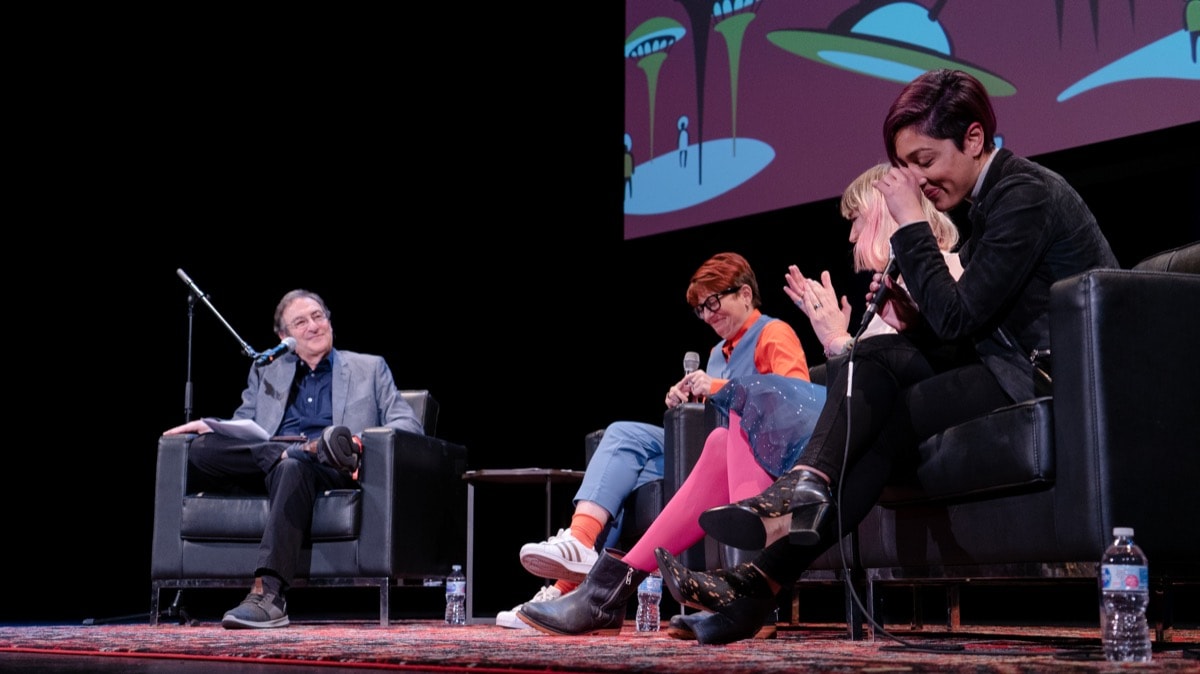Imagining The Future Of AI
34:01 minutes

This interview was recorded live at an event in San Francisco, California. We also talked about environmental justice and face mites.
It’s tempting to think of science fiction as solely the stuff of improbable futures or dystopian nightmares— flying cars, omniscient computers, miraculous medicine, and even time travel. But if you’re an avid reader or consummate Trekkie, you might notice these fantastical futures taking your mind all the way back to the news stories and social issues of 2019.
Science fiction writers and Hugo-winning podcast hosts Annalee Newitz (author of The Future Of Another Timeline) and Charlie Jane Anders (author of The City In The Middle Of The Night) talk about their work imagining future worlds and new kinds of technology—plus how all of this fiction traces back to the present. They discuss how Wikipedia edit wars can inspire a story about time travel, and how the way the modern climate crisis is shaping stories that question human roles in ecosystems thousands of years and light years away.
Then, AI ethicist Rumman Chowdhury joins to discuss how social science can help the tech industry slow down and think more responsibly about the future they’re helping to build. She suggests that more companies should be asking how technologies could be abused or have unintended consequences before they’re released, and even ask if some, like facial recognition, should be developed at all.
Invest in quality science journalism by making a donation to Science Friday.
Annalee Newitz is a science journalist and author based in San Francisco, California. They are author of Stories Are Weapons: Psychological Warfare and the American Mind, Four Lost Cities: A Secret History of the Urban Age andThe Future of Another Timeline, and co-host of the podcast Our Opinions Are Correct.
Charlie Jane Anders is author of The City In The Middle of the Night and co-host of the podcast Our Opinions Are Correct in San Francisco, California.
Dr. Rumman Chowdhury is founder and CEO of Parity Consulting, a Responsible AI Fellow at the Berkman Klein Center of Harvard University, and a visiting researcher in the NYU Tandon School of Engineering in New York, New York.
Christie Taylor was a producer for Science Friday. Her days involved diligent research, too many phone calls for an introvert, and asking scientists if they have any audio of that narwhal heartbeat.
Ira Flatow is the founder and host of Science Friday. His green thumb has revived many an office plant at death’s door.